Colleen Duffy-Smith’s Career Has Spanned Music Studios, Courtrooms and Classrooms
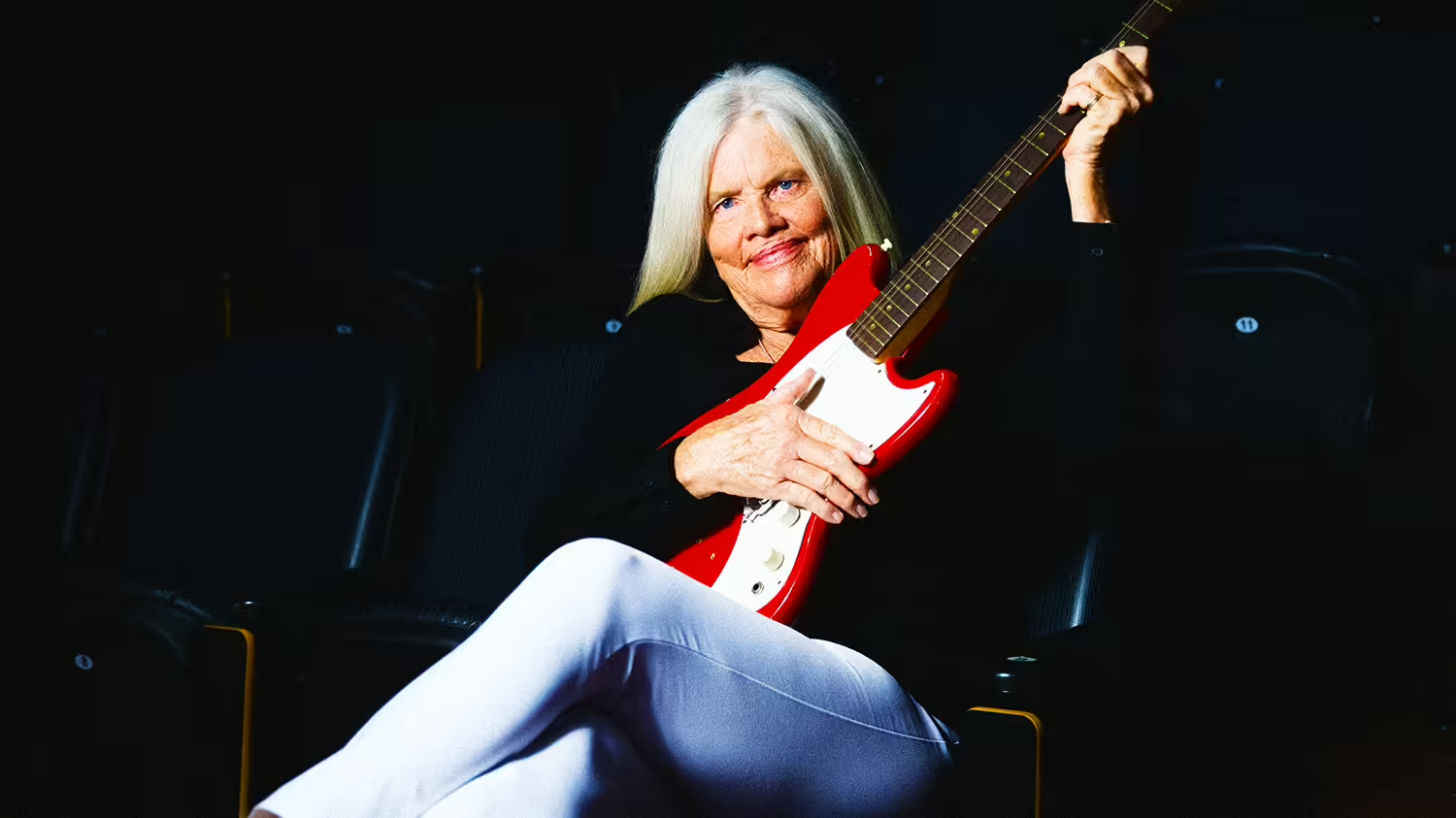
Colleen Duffy-Smith started her career in the music business and went on to work as a civil trial attorney and a lecturer at the Orfalea College of Business. (Photo/Jahan Ramezani)
From working for Sir Richard Branson to being a single mother while attending law school and forming a women-owned/managed law firm, Colleen Duffy-Smith has never lost her drive.
Duffy-Smith is a lecturer at the Orfalea College of Business and a licensed civil trial lawyer, who incorporates her unique career experiences into classes on accounting ethics, business law and government and social influences on business.
“I try to share my personal experience, to let you know that sometimes the path takes little turns when you least expect it, and opportunities present themselves to you, and that might, in fact, be the choice you want,” said Duffy-Smith.
Duffy-Smith shared her experience working in the music industry, her path to teaching, and her thoughts on how the upcoming election might impact business.
Can you provide a background on your undergraduate education and early work?
I graduated with a double major in psychology and Spanish from the University of California, Santa Barbara. I was part of the education abroad program in my junior year, where I attended La Universidad Complutense de Madrid. My best friends at that time were a group of Chilean musicians who got a very good record contract and moved to Cologne. I was visiting them once, and they introduced me to who would be my husband and father of my children, a musician from England. I worked with him, fostering and supporting his career in various formats as a business manager, a sound engineer, and a backup singer. When we were residing in the UK, I was looking for employment and took a job with Virgin Records.
Virgin Records was owned by Sir Richard Branson. What did you do for him, and how was it working for him?
He was quite the mover, shaker, and entrepreneur at that time with his business methods. He was savvy and hands-on, so I dealt with him a lot. As the business and operations manager of one of Virgin Records’ assets, a big recording studio, I handled a good deal of marketing and selling of the facilities. I enjoyed my relationship with him; he was very respectful and supported me.
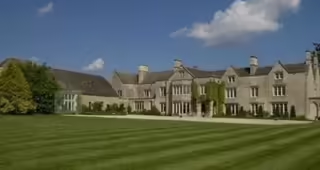
Colleen Duffy-Smith worked at this Richard Branson-owned English Manor, where she worked asd a studio manager. “Quite a storied archive of albums recorded there,” she said. (Photo courtesy of Colleeen Duffy-Smith)
Here’s a great Richard story. The studio that I managed was called the Manor Studio. It was in a small village outside of Oxford called Shipton-on-Cherwell, and it’s called the manor because it was a big old manor house with three Irish wolf hounds running around and fireplaces so big you could walk in. Think of the English TV shows that you’ve watched. The business format was that we had two mobile units, which were fully articulated trucks with, at that time, 24-track recording studios and bands like The Grateful Dead booked the Manor Mobile to record shows in remote locales like the pyramids in Egypt. It was also a residential recording studio, so the bands would come, usually for two or three weeks at a time, to record an album.
It was a combination of running this big English country hotel and a recording studio business, and it was on this beautiful land. Richard would call me up and go “I think we need a swimming pool.” So, I oversaw the building of a swimming pool. We had a go-kart track. And it just made it crazy fun to work for him because he could finance all those things, and he trusted me to oversee the projects.
When did you come up with the idea of attending law school?
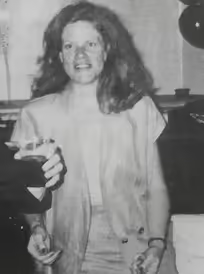
Colleen Duffy-Smith, as business manager at KKCY FM 98.9, San Francisco circa 1985. (Photo courtesy of Colleen Duffy-Smith)
I worked in radio and television in the San Francisco Bay Area market, and at that time, the market was very volatile. I was a business and finance manager at various FM radio and television stations. What happened in the broadcasting business was deregulation; station owners could now own multiple media platforms. You had owner groups, groups of investors who weren’t really at heart, broadcasters. That’s where my heart was because I carried the music gene and believed in the product we were putting out over the air. I was losing my love for the craft and the profession because I saw this non-caring attitude about what was being pumped out over the airwaves.
I started contemplating my next move. At that point, I had long ago graduated and thought about what I could do to enhance my business acumen, which was already there, and get into the upper echelons of broadcasting and music. So, I thought I’d give law school a try.
I went to my local library, checked out a book, and self-taught myself in preparation for the LSAT. I knew that I was my family’s primary financial supporter. I would have to continue working full-time and attend law school. I went through the application process and was fortunate enough to have been accepted to all three accredited schools that did night law programs, so I had a choice. I chose to go to the University of San Francisco because I intended to stay in the Bay Area, and very well-connected people in the legal community and judges were graduates and alumni of USF.
How did you handle being a single mother of two while attending Law School and financially supporting your family?
My marriage did not survive, so during my second year of four years of law school, I became a single mom. My daughter was six months old, and my son was four years old when I started law school; I worked full time, 40 hours a week, still in radio and TV, and went to law school four nights a week.
I looked at the long road and said, number one, I need to do this because I was the major financial support for the family at that point. It was tough. It was tough on them. It was tough on me.
How did you figure out what type of lawyer you wanted to be?
I never intended to be a trial lawyer in law school. I intended on being a transactional lawyer. Those are lawyers who negotiate contracts and deals. I had experience with the artists/performers; that was my intention. I had a very good mentor, who worked for a prominent law firm in Los Angeles and happened to be Carole King’s lawyer. She gave me the reality of what my life would look like if I were starting as an associate at one of the big, prestigious entertainment firms. That reality involved sitting in a cubicle all day, working ungodly hours, and making bazillions of dollars, but she knew I had my family. She said you’d never see your family, which was a harsh reality.
My first law firm position as an associate with O’Brien and Harrington in San Francisco was inspirational, fun, and Bill and Ken provided me with the best foundation in trial lawyering.
The second firm I worked for was McManis Faulkner Morgan. When I joined, I became a partner. Eventually, one of my partners and I decided that we were going to leave to start our own firm. Around 2006, in San Jose, my former partner, me, and somebody else on her team started an all-women-owned law firm, Morgan Duffy-Smith Tidalgo.
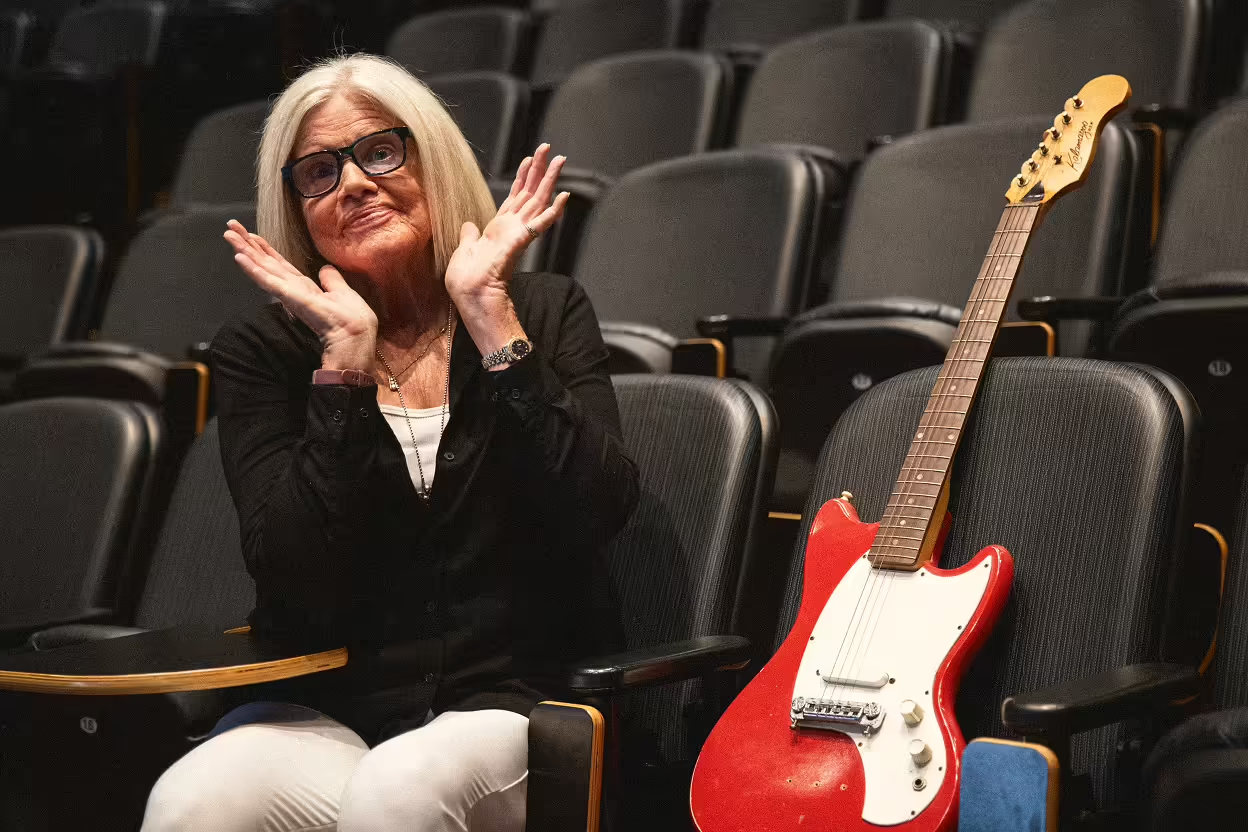
Colleen Duffy-Smith she applies the many lessons she learned at her various career stops into her accounting and law courses. (Photo/Jahan Ramezani)
What type of lawyer are you, and what area of law did you specialize in?
I’m a trial lawyer. The cases that I’m most proud of are the cases where I helped people, which was a really good thing. I really felt like I helped people individually.
I believe in the judicial system and the rule of law, and I very much enjoyed the practice. Not to brag about myself, but I think I was a fairly good lawyer. I enjoyed practicing with the other really good lawyers.
When did you get into teaching?
Part of my life plan for 2016 was, what’s the next level? I had a friend, one of my favorite colleagues, a lawyer, who was teaching at Cañada College, and they had an opening for a teacher to teach in their paralegal program. I signed up.
That was my first foray into teaching while still working full-time. I followed that up with a short year or so in the paralegal program at the University of California, Berkeley. Then, you know, my life plan was, where will I move next?
I loved the Central Coast even after all my travels. I purchased what was my second home at that time with the intention that it would be my decompression zone. I could go down and have weekends to decompress from my law practice in the Bay Area, and eventually, that would be my retirement home. So, in 2016, I moved, sold the family home in San Jose, and moved permanently to the Central Coast.
I decompressed for about six months, and I was bored. So I’m like, You know what? I liked teaching. Why don’t I see what opportunities might be available to me here? So, I applied for a law lecturer position at Cal Poly, and they hired me.
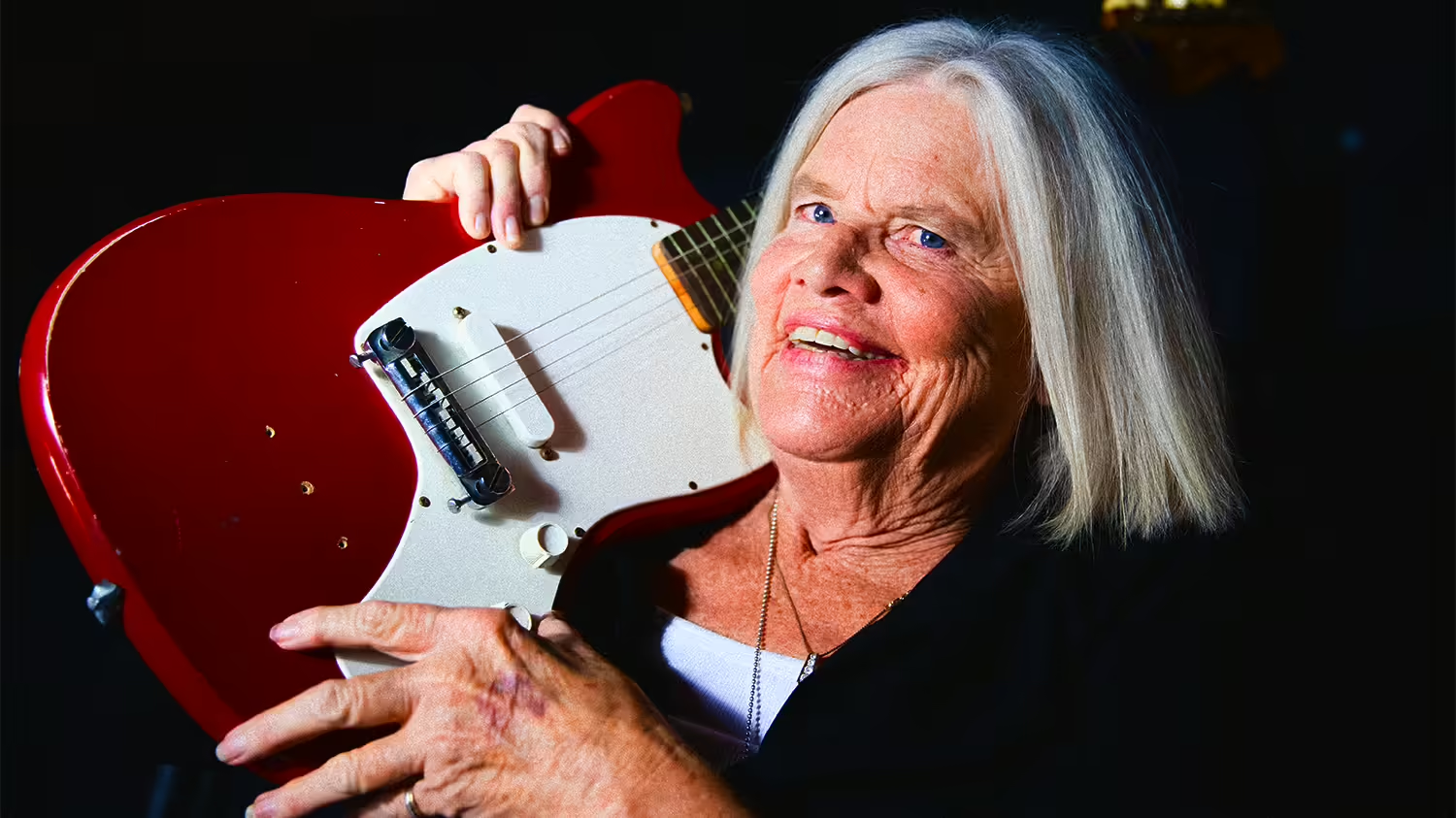
Colleen Duffy-Smith poses in the Silo with her vintage Kalamazoo guitar. (Photo/Jahan Ramezani)
How have you integrated the current political landscape into your classes with your legal background?
Politics is ever present in our lives, affecting many aspects of our lives, our civil rights, our ability to work, and the conditions under which we can work. Kim Westermann [Accounting Professor] and I both teach sections of Accounting Ethics (Business 424), and one of the things that she instituted, which I have adopted, is a daily podcast that we have the students listen to, Up First from NPR. They synopsize four of the most important stories worldwide because we all, and our students, must be aware of what’s going on out there. They’re always good at sparking critical thinking and stakeholder views.
What shift could occur over these next few months and even after November or January?
Number one, first and foremost, get out there and vote. Your vote counts. Vote up and down the ticket for your personal preferences and participate in our democracy. Don’t sleep on it because some want to take it away from us.
I don’t have a crystal ball and can’t tell you what will happen in November, but the way it is positioned presently is a very serious situation that needs consideration. Look at the facts; do not be overcome with disinformation, which we closely examine in the Business 404 curriculum regarding using social media to persuade in dishonest ways. Be a critical thinker.
In business, I hope that people will still care about humanity, that we will still care about our planet, sustainability, and making profits, and that it’s all entirely possible.
Your contributions to the Accounting & Law program at the Orfalea College of Business helps prepare students to be Day One Ready professionals as soon as they graduate.
